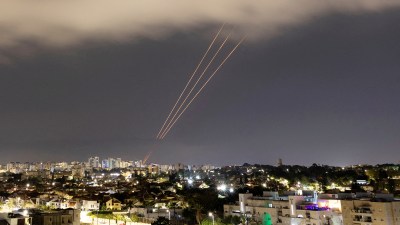- India
- International
New UK visa rules all but shuts doors the Punjabi immigrants
While launching the new system, UK’s Home Secretary Priti Patel said they want to attract the “brightest and the best” from the world, including from India, and to reduce the number of cheap and low-skilled workers coming to the country.
 A majority of Punjabis looking to move to other countries do so while seeking low skill jobs — something that UK has decided to reduce. (Express Archive)
A majority of Punjabis looking to move to other countries do so while seeking low skill jobs — something that UK has decided to reduce. (Express Archive)
The new points-based visa system unveiled by United Kingdom’s Home Secretary Priti Patel is likely to come as a major setback for Punjab residents looking to immigrate or pursue higher studies in the UK.
While launching the new system that will come into force from January 1, 2021, Patel said they want to to attract the “brightest and the best” from the world, including from India, and to reduce the number of cheap and low-skilled workers coming to the country.
“Priti Patel’s idea to create single global system, which gives the UK government control of immigration to bring the brightest and best talent without discrimination between the European Union (EU) and non-EU countries, may not be suitable for Punjabis in particular,” said Gurpal Singh Oppal, a UK-based immigration expert and renowned immigration solicitor.
A majority of Punjabis looking to move to other countries do so while seeking low skill jobs including in the construction business, agriculture and hospitality sectors.
Under the system, visa for low-skilled jobs is almost as good as closed. Also, the new rules will create problems for illegal immigrants staying for years in UK and waging a battle to secure permanent residency (PR).

“The new system is designed to encourage highly skilled labour. Under the existing rules, many of the IT, health sector visas are granted to Indians – UK granted more than 55,000 visas to such skilled professionals from India. But Punjabis coming to the UK seem to be attracted to the low skill jobs, preferring to work long hours,” said Oppal.
“The UK government is also due to increase the seasonal agricultural farming visas to 10,000 (from existing 2,500) and the youth mobility visas to 20,000, but once again Indians, especially the Punjabis, will not gain much,” he added.
Oppal said that in the UK, immigration is not a problem, but a solution. “We are an economy of near full employment, so we do not have a pool of unemployed workers in the UK”.
Under the new scheme, foreign workers who wanted to come to the UK would have to speak English and have the offer of a skilled job with an “approved sponsor”. They would be awarded 50 points if they fulfil these criteria. In total, immigrants would have to reach 70 points to be able to work in the UK, with points also being awarded for qualifications, the salary on offer and working in a sector with shortages. The minimum salary threshold will be set at £25,600 pounds – lower than the previous 30,000 pounds level for Tier 2 work visas. This means that if an applicant is earning less than the minimum salary threshold, but no less than £20,480, they may still be eligible if they can demonstrate that they have a job offer in a specific shortage occupation, or if they have a PhD relevant to the job.
Even the student visa will be points-based and those wishing to study in the UK will need to demonstrate that they have an offer from an approved educational institution, that they can support themselves financially and that they speak English.
Oppal, however, doesn’t much in it for students from Punjab. “Recent increase in number of students arriving at the UK, seems to be an alternative to leave Punjab, but without the will to study and with a poor command over English,” he said.
Immigration lawyer Harjap Singh Bhangal, while talking to The Sunday Express from the UK, said, “At the face value, the new rules will provide students from Punjab a chance to get the PR after showing their talent in the skilled field and a good job offer. But everyone knows how many students from Punjab are talented”.
He further said that most of the students arriving at UK from Punjab “are just average students pursuing bachelors degree and looking for menial jobs or interested in marrying British nationals so that they can settle permanently here”.
“But now such marriages too do not offer much as for an immigrant to get a PR, you need to have a baby with the Briton you are married to and must stay in the UK for 10 years after securing visa (four times on visas of two-and-half-years duration),” he added.
The immigration lawyer said that a lot of Punjabis reach the UK on visitors’ visa but do not return and instead take up low skill jobs and later applied for PR. “Now their chances of settling in the UK are bleak with the window being shut in low-skill work visas,” said Harjap, who claim to have come across several cases of Punjabis overstaying in the UK.
According to experts, there are over one lakh Indians living illegally in the UK of which nearly 70 per cent are Punjabis. Most of them have low skill jobs. Some of them have been staying there for close to two decades.
Lovish Kalia, an immigration expert to UK and member of Association of Consultants for Overseas Studies, a registered body of Travel Agencies in Doaba, said that though the new rules will not affect the students going to UK on study visa, but it will definitely affect them at the later stage when they apply for PR.
UK MP Tanmanjeet Singh Dhesi said, “Despite Prime Minister Boris Johnson talking about an amnesty on illegal immigrants and easing immigration restrictions, he has, in his usual style, misled the public and done the exact opposite. This U-turn and harsh restrictions will no doubt mean it becomes even more difficult gradually for people to invite over relatives from India and elsewhere. This will hurt our economy and is strongly opposed by business leaders within the care, construction, hospitality and other sectors, who are all finding it difficult to recruit staff within the current situation.”
Must Read
Apr 19: Latest News
- 01
- 02
- 03
- 04
- 05






































